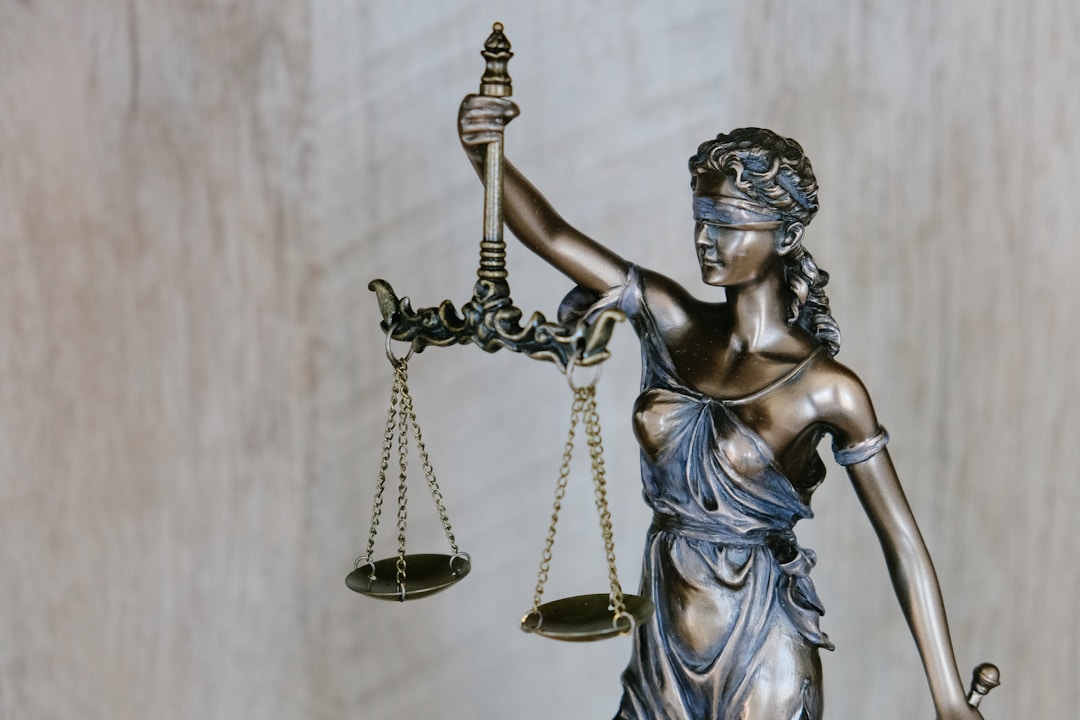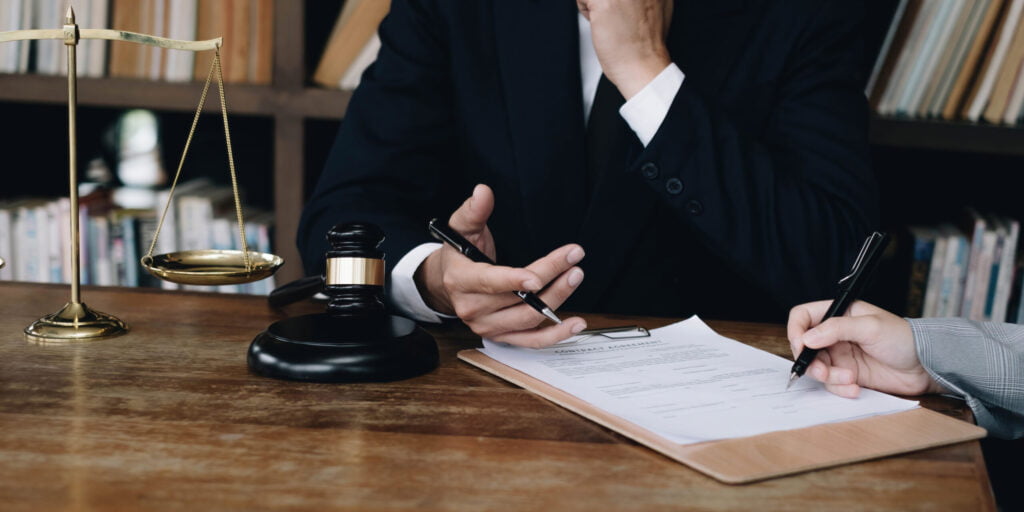Working with a criminal defense lawyer can sometimes be a daunting task. Whether you personally require their services or are seeking guidance on behalf of someone else, understanding how to effectively work with a lawyer can significantly influence the outcome of the case. Knowing what to expect, how to prepare, and how to openly communicate with your legal representative is vital. In this article, we unravel the various facets of engaging with a criminal defense lawyer.
Preparing For the Initial Consultation

When facing criminal charges, your initial consultation with a defense lawyer, such as a Las Vegas criminal defense lawyer, is crucial. Preparation is key during this session as it outlines the nature of your case and gives the lawyer a glimpse of the charges at hand. You have to be honest and clear about all the facts concerning your situation. Withholding information can lead to severe implications later on. The primary goal of the first meeting is to assess the case thoroughly and identify possible defenses. Ensure to provide all documents related to your case, including any legal paperwork, correspondence, court notifications, and bail papers.
Preparing a list of potential witnesses and any evidence that may be beneficial for the case is also necessary. Ask pertinent questions to understand your position, potential penalties, and the lawyer’s strategy for defense. List any worries and concerns about the case, all legal fees, and the duration of the trial. This meeting defines the path ahead, so leaving with clarity and a proper game plan is a priority.
Acknowledging the Process of a Criminal Trial
Understanding the journey of a criminal trial aids in creating realistic expectations. The process varies depending on the nature and complexity of the case. However, most trials follow a specific pattern: arraignment, pretrial conference, trials, and sentencing. Arraignment is the first court appearance where charges are formally presented, and you have the chance to plead guilty or not guilty. Following this, the pretrial stage is where motions are presented, and plea bargains may occur.
If the case proceeds to trial, there’s a selection of a jury, opening statements, presentation of evidence, closing arguments, jury instructions, deliberation, and verdict. You need to understand that choosing to go to trial implicates accepting the risk that the final decision rests with the jury. A sentence may range from fines, probation, imprisonment, or a combination of any. Awareness of these potentials manages anxiety and stress related to the trial.
Communication: A Two-Way Responsibility

When you find yourself in need of a criminal defense lawyer, it is vital to establish an open and honest line of communication with them. The outcome of your case can be greatly influenced by how well you are able to convey the facts, circumstances, and details surrounding your situation. By communicating honestly with your lawyer, you allow them to build a strong defense strategy tailored to your specific needs.
One of the key reasons to communicate openly is to ensure that your lawyer has all the relevant information about the case. Whether it’s previous convictions, witnesses, or any other pertinent details, providing your lawyer with a complete picture enables them to assess the strengths and weaknesses of your case accurately. By withholding information or providing incomplete details, you run the risk of hindering your lawyer’s ability to defend you.
Moreover, communication ensures that both you and your lawyer are on the same page, creating a strong attorney-client relationship. By openly discussing your goals, concerns, and expectations with your legal representative, you allow them to provide you with realistic advice and manage your expectations. This collaborative approach enables your lawyer to guide you through the legal process, explaining the potential outcomes and the steps involved, so you can make informed decisions about your defense strategy.
Giving Your Defense Lawyer Time to Prep
A competent criminal defense lawyer understands that no two cases are the same. They recognize the unique aspects and complexities of your case and take the time to thoroughly examine every detail. This includes reviewing police reports, witness statements, forensic evidence, and any other relevant documents. By paying attention to even the smallest details, they can identify potential weaknesses in the prosecution’s case and develop strong counterarguments.
Preparing a defense strategy is not a quick job. Your attorney needs time to investigate the prosecutory evidence, begin legal research, consult experts, interview witnesses, and prepare legal documents. Rushing the lawyer might lead to missing out on essential aspects of your case, which can have long-term implications. Therefore, you need to give your lawyer suitable time to prepare the case. However, this should not be an excuse for your lawyer not to keep you updated. They should regularly update you concerning the progress of your case even as they take time to prepare a strong defense.
Preparing a solid defense strategy also requires extensive legal research and knowledge. A skilled defense lawyer will study relevant case laws, statutes, and legal precedents that may support your defense. They will anticipate the tactics the prosecution may use and develop counterarguments to challenge their evidence or witness testimonies.
Emphasizing Client’s Confidentiality Rights

When working with a criminal defense lawyer, you need to understand your confidentiality rights. Confidentiality is a major aspect of the attorney-client relationship. These rights ensure that you can freely discuss the sensitive details of your case, allowing your lawyer to provide representation and develop a strong defense strategy on your behalf.
Confidentiality between an attorney and client is protected by the attorney-client privilege. This privilege ensures that any information you share with your lawyer remains confidential, even if it is potentially incriminating. It means that your lawyer cannot disclose any information discussed during consultations, preparations, or court proceedings without your consent. This confidentiality extends to all aspects of your case, including documents, testimony, and discussions related to strategy or investigation.
Note that there are exceptions to attorney-client privilege. For instance, if you plan to commit a future crime or seek advice to further a crime, the privilege can be overridden. Additionally, if you disclose information that implies intent to harm yourself or others, your lawyer may be legally obligated to report it. Understanding these exceptions will enable you to navigate to the boundaries of confidentiality and ensure that you are fully informed throughout the legal process.
Navigating Legal Fees and Contract Signing

The process of hiring a legal representative also includes negotiating the fees involved. Most lawyers either charge a flat fee or an hourly rate. Always ask for a written agreement to avoid future misunderstandings. Ensure that the contract clearly outlines the services the attorney will provide, the cost of these services, and the terms of payment.
Avoid lawyers who promise specific outcomes as they might only be after your money. In law, nothing is guaranteed; thus, all a lawyer can do is promise to do their best to defend you. If you’re unable to afford a lawyer, you can apply for a court-appointed lawyer. However, such lawyers may not give you the level of attention and devotion that a private lawyer would. If you can afford it, it is usually best to hire a private attorney.
As this article demonstrates, working with your criminal defense attorney need not be a nerve-wracking process. It’s about understanding the value of patience, communication, and trust. While a criminal case against you or a loved one can be a deeply challenging experience, having a competent criminal defense lawyer undoubtedly eases the legal burden. If you follow our advice, you’ll give yourself the best possible chance of a positive outcome in your case.























